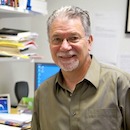Page 22 • (2,796 results in 0.021 seconds)
-

Social Coordinator | University House | jgriek@plu.edu | 253-535-7156
Jennie Griek Social Coordinator Phone: 253-535-7156 Email: jgriek@plu.edu
-
Theme: Harnessing the Power of Hope Hope influences all of us in our pursuit of goals. Understanding the foundations of hope can help propel you to greater success in anything you decide to
LUTE Welcome Week - Graduate Student Virtual SocialThursday, September 3, 6:00pm-7:30pm | Zoom Online Event Theme: Harnessing the Power of Hope Hope influences all of us in our pursuit of goals. Understanding the foundations of hope can help propel you to greater success in anything you decide to accomplish. Come join the Graduate Student Virtual Social on September 3 to listen to the talk, Harnessing the Power of Hope, presented by Dr. David Ward, Professor of Marriage and Family Therapy. In
-

Thursday, March 3, 2022 | 7:00 p.m. (PST) | Scandinavian Cultural Center, Anderson University Center Also Livestreamed for those who cannot attend.
a student who changed his research trajectory and the university’s limited engagement with the critical issue of food justice.Samuel Torvend, Professor of the History of Christianity Samuel Torvend teaches courses in the history of early, medieval, and reformation Christianity as well as historical courses on the reform of social welfare, Christian responses to local and global hunger, Christian art and architecture, and Christian rituals. He has taught in PLU’s International Honors Program and
-
history news for Pacific Lutheran University.
Getting Creative: PLU’s Gateway Class in Innovation Studies By Sarah Cornell-Maier ‘19. This Fall, Pacific Lutheran University is introducing a new class that serves as a gateway to the Innovation Studies Program . Hist/Phil 248: Innovation, Ethics, and Society is a team-taught course that combines many different fields of study into one. It… September 3, 2018 Hist/Phil 248historyinnovation studiesMichael HalvorsonMichael SchleeterPhilosophySarah Cornell-Maier
-

Kurt Mayer Chair, Emeritus | Department of History | ericksrp@plu.edu | Robert Ericksen, Kurt Mayer Chair in Holocaust Studies Emeritus and Professor of History at PLU, earned his Ph.D.
Museum, and the Lutheran Academy of Scholars at Harvard University; he has received research awards from the National Endowment for the Humanities, among others; he is a founding member on the board of editors of a German journal, Kirchliche Zeitgeschichte, and of an online journal, Contemporary Church History Quarterly; and he serves as Chair of the Committee on Ethics, Religion and the Holocaust at the U.S. Holocaust Memorial Museum. In 2004 Ericksen delivered the biennial Kaplan Holocaust Lectures
Contact Information -

Our context: Highly secular and diverse in terms of religion, culture, and race. This context makes us work harder to define and embody Lutheran Higher Education because one cannot fall back on
defining a thriving, widely-accessible form of Lutheran Higher Education today. An Education with Foundational Core Elements/Values This value-based approach to teaching and learning differs from State/Research Universities Uniquely values the importance of critical questioning Values liberal arts as a foundation for free thinking, innovation and service (a liberating education) Luther’s two theses in “The Freedom of a Christian” were that people were free and yet called to serve others We continue to
-
This list includes all the courses that contribute towards the Environmental Studies major and minor, and specifies the General Education requirements they fulfill and their pre-requisites.
: Studies in Literature and the Environment (4) PHIL 226: Environmental Ethics (4) PHIL 327: Environmental Philosophy (4) RELI 236: Native American Religious Traditions (4) RELI 257: Christian Theology, when topic is “Green Theology” only (4) 3. Environmental Justice – 4 semester hours These courses examine intersections between environmental degradation and structural discrimination and how Indigenous and/or minoritized communities live in and experience these intersections. The courses critically
-
The Matrix seeks to facilitate dialogue within the PLU community regarding issues of social justice and provides an outlet for students and faculty to explore the numerous ways in which social
The Matrix EditorDescriptionThe Matrix seeks to facilitate dialogue within the PLU community regarding issues of social justice and provides an outlet for students and faculty to explore the numerous ways in which social justice takes form. The editor is responsible for the production and publication of The Matrix each semester. This includes advertising for submissions, editing, and facilitating the layout and printing of the publication. The editor should be an individual who is passionate
-
Tanya Erzen is an Associate Professor of Religion and Gender Studies at the University of Puget Sound and the executive director of the Freedom Education Project Puget Sound, a college program in the
: Sexual and Christian Conversions in the Ex-Gay Movement (California, 2006), received the Ruth Benedict Prize and the Gustave O. Arlt award. Erzen also authored Fanpire: The Religion of Twilight (Beacon Press, 2012) and is co-editor of Zero Tolerance: Quality of Life and the New Police Brutality in New York City (NYU, 2001). She is a recipient of fellowships from the National Endowment for the Humanities, Social Science Research Council, Open Society foundations and Hedgebrook Writer in Residency.
-
What follows are two different ways of expressing the same International Honors Program Learning Outcomes: the first version is aimed at students beginning their studies; the second version is
the contemporary world. In IHON, you will learn to evaluate the claims past and present societies and communities tend to make about their achievements. You will also learn to contextualize these claims, in order to explore those societies’ and communities’ achievements and shortcomings. But you’ll also use those perspectives to contextualize your own claims and your own society. Think about how social issues are different in different societies and different times: the basic questions may be the
Do you have any feedback for us? If so, feel free to use our Feedback Form.


